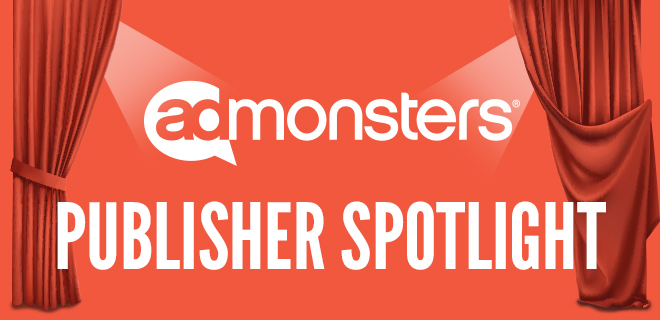
Zip Nguyen leads BBC Studios’ yield strategy with a sharp focus on data, collaboration, and mentorship—proving that long-term impact comes not just from growing revenue, but nurturing the people behind it.
If you think yoga and yield optimization don’t mix, Zip Nguyen, Business Intelligence and Yield Lead at BBC Studios, might inspire you to rethink your routine.
A devoted daily practitioner, Nguyen turns to yoga not just for spiritual and physical balance, but as a mental reset that fuels her strategic edge.
That same focus and intentionality carry through to her role at BBC Studios, where she oversees monetization of the BBC’s wide-ranging portfolio across North America and Latin America.
From forecasting and inventory management to pricing, insights, and commercial analytics, Nguyen’s day-to-day is anything but static. We’re sure any ad ops professional can relate.
Nguyen’s work also sits at the intersection of data and deal-making, where she partners closely with ad sales to shape monetization strategies, align go-to-market plans, and steer revenue growth.
But beyond the dashboards and decision trees, mentorship is baked into Nguyen’s definition of success. She believes delivering business impact means not just meeting the numbers, but cultivating the people who power them.
“I place a top priority on mentoring and team development,” said Nguyen. “That’s not a side responsibility, it’s core to long-term impact.”
Nguyen spoke with AdMonsters about the BBC’s daily operations and how her team is meeting the challenges facing digital publishing.
 AB: How does the BBC use data analytics to inform and optimize yield management strategies across its digital properties?
AB: How does the BBC use data analytics to inform and optimize yield management strategies across its digital properties?
ZN: Data is both our compass and catalyst.
At BBC Studios, analytics inform everything, from performance and pricing strategy to upselling and identifying commercial growth areas. But yield strategy isn’t only about numbers—it’s about balancing editorial integrity with commercial ambition and deepening direct client relationships.
We work cross-functionally to ensure monetization aligns with our content’s depth, audience needs, and brand promise.
AB: There have been a lot of challenges news publishers have faced over the last couple of years (declining referral traffic, brand safety, etc). What challenges are standing out to you, and how are you tackling them at the BBC?
ZN: Like many publishers, we face the challenge of outdated brand safety tools that struggle to account for the nuance of socially responsible journalism. Important coverage—on climate, equity, or global affairs—is often misclassified, limiting monetization. We’re working closely with advertisers to evolve toward brand suitability and build context-aware solutions that align with their values without compromising editorial integrity.
In parallel, we’re strengthening direct audience relationships to ensure visibility beyond platform dependency.
Since our site relaunch, we’ve seen steady growth in search referrals, driven by our effective SEO strategy, technical site health, and the trust our content carries. That momentum opens up new opportunities to better monetize top-of-funnel audiences through real-time revenue optimization, personalized content journeys, and newsletter growth.
What enables all of this is our collaborative culture across data, editorial, product, and commercial teams—an integrated approach that we believe is essential to long-term resilience.
AB:You seem optimistic about where brand safety is heading for publishers—what changes are you most encouraged by?
ZN: I’m excited by the evolution of brand safety tech toward more contextual, customizable AI tools. The industry is finally moving beyond rigid keyword blocklists, allowing brands to define thresholds aligned with their values while enabling publishers to monetize important stories more effectively.
AB: Are there any emerging ad tech trends or industry shifts that you’re particularly excited—or concerned—about?
ZN: I’m encouraged by rising demand for transparent, verified supply path optimization, which will contribute to a healthier ecosystem for both buyers and sellers.
What concerns me is the lack of a clear framework for value attribution in AI-driven environments. As generative tools become more embedded in how content is distributed, summarized, or monetized, we need to ensure publishers aren’t sidelined in the very ecosystem they fuel.
If we don’t address this proactively, we risk weakening the open web and the sustainability of socially responsible journalism.
AB: What advice do you have for how news publishers can win in today’s digital marketplace?
ZN: Double down on what makes you essential, but don’t do it in silos.
In an era of synthetic content and algorithmic curation, responsible verified news and human voices are our edge. However, we can’t just protect it. We also need to innovate around it and reimagine what’s possible.
The future of journalism will look very different from today, and it will belong to publishers who lead with both integrity and agility: those who can evolve their commercial strategies while staying grounded in mission. The more we connect those dots for advertisers, the more value we can unlock together.